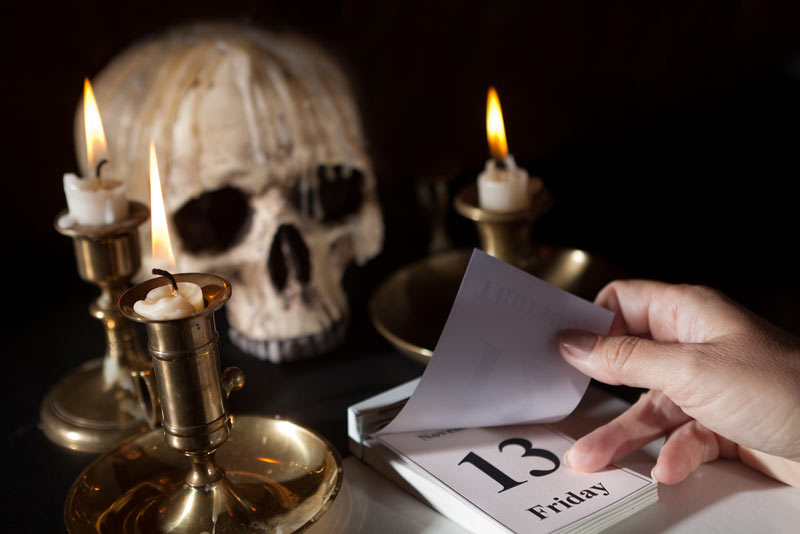Why Do We Fear Friday the 13th?

Despite rational attempts to dismiss it, a fear of Friday the 13th pervades society.
Research has shown that people are superstitious for a variety of reasons, both psychological and cultural. Superstitions are an attempt to control things that are beyond one's control, and a way to deal with the anxiety that comes with that lack of control, experts say.
"Despite having so much technology at our beck and call, there are still things we don’t understand and can't control that matter a lot to us," said Stuart Vyse, a psychologist at Connecticut College who specializes in the psychology of superstition. [The Surprising Origins of 9 Common Superstitions]
Roots of superstition
Oftentimes, people are superstitious about things they want to go well but can't guarantee, such as getting a job, acing an exam or winning in sports, Vyse told Live Science.
"When it's a combination of something you care about and want badly but can't guarantee, superstitions tend to fill the gap," he said.
Barry Markovsky, a sociologist at the University of South Carolina, offered a similar explanation.
Sign up for the Live Science daily newsletter now
Get the world’s most fascinating discoveries delivered straight to your inbox.
"People are trying to gain some kind of sense of understanding and control over the chaotic universe, and this is one small way that some people feel they have an understanding of forces beyond themselves," Markovsky told Live Science.
Another reason for superstition is purely sociological. Simply put, people are influenced by the beliefs of others, such as family members or friends, Markovsky said.
"Knowing that other people believe it makes it way more likely" that you will believe it, too, he said.
There are also evolutionary reasons why people might be susceptible to believing things that aren't real. Back in the days of hunter-gatherers, if you had a suspicion that a rustle in the bushes might be something dangerous, you were better off hiding or running than ignoring the risk and possibly being killed, Markovsky said.
"To make the mistake of seeing danger when there's no danger is going to increase your chance of survival," he said.
Combined superstitions
The Friday the 13th superstition has many possible origins, and likely originated as two separate superstitions, experts say.
The most prominent explanation for the fear of the number 13, known as triskaidekaphobia, is that it came from the biblical Last Supper, when there were 13 people at the table.
As for how Friday came to be involved, Christ was supposedly crucified on that day, and Fridays have always had a special significance in religion. In addition, people were commonly hung on Friday, which became known as hangman's day, Vyse said. But the fears of Friday and the number 13 weren't combined until the 19th century, he said.
Polls show that between 9 and 13 percent of the adult U.S. population believes Friday the 13th is a truly unlucky day, Markovsky said. But in other countries — such as Italy, Egypt and China — 13 is a lucky number, he said.
The majority of Americans dismiss Friday the 13th's mystical significance, but no matter how rational your outlook, anyone can be a little wary. Even Markovsky once found himself seated in the 13th row on a turbulent flight, with a full moon outside, and it made him feel uneasy, he said.
Follow Tanya Lewis on Twitter and Google+. Follow us @livescience, Facebook & Google+. Original article on Live Science.











